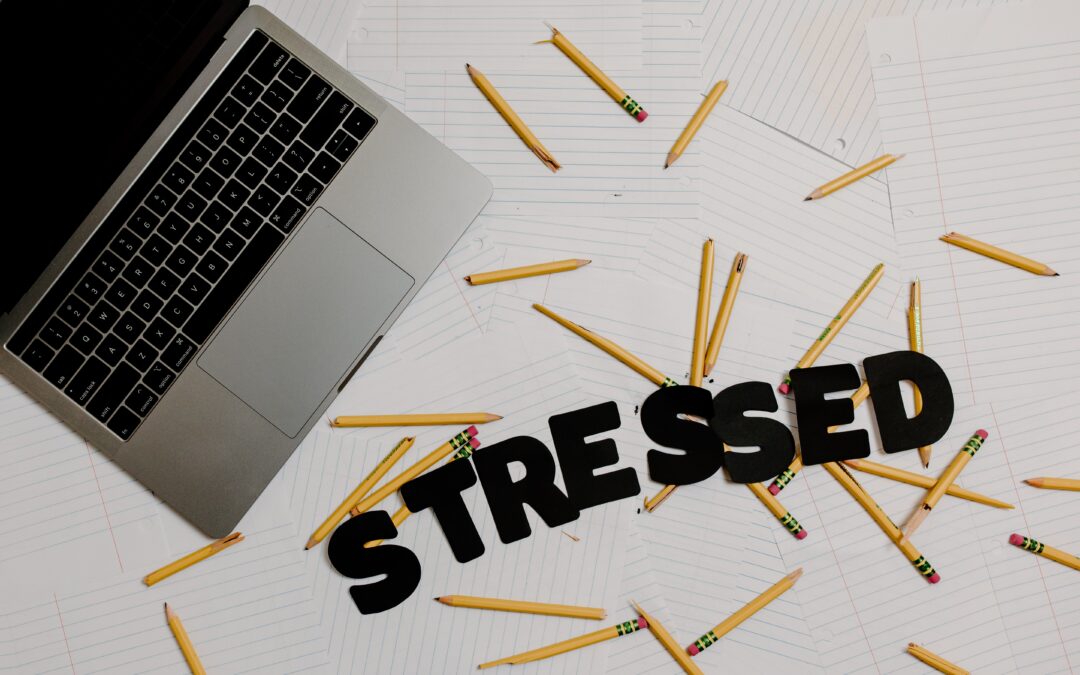What is Stress Awareness Month?
Stress Awareness Month is a time to recognise the impact of stress on our lives, and to find ways to reduce it. The purpose of Stress Awareness Month is to raise awareness about the importance of managing stress in our daily lives. It also provides an opportunity for people who experience high levels of stress to connect with others who share similar experiences.
The first Stress Awareness Month was celebrated in May 2012 by The American Institute of Stress (AIS), an organisation dedicated to helping individuals manage their own stress levels by teaching them how they can improve their health through proper nutrition and exercise habits, as well as learning techniques such as meditation or yoga that help calm them down when they feel overwhelmed by life’s challenges.
The Impact of Stress
Stress is a natural reaction to life’s challenges. It can help you perform better, but too much stress can harm your body and mind. The negative effects of stress include:
- Increased blood pressure
- Decreased immunity
- Weight gain or weight loss (depending on whether you eat more or less)
Stress may also cause symptoms such as headaches and muscle tension. If you have any of these symptoms, it’s important to see your doctor right away so they can rule out other health problems that could be causing them!
What is Work-Related Stress?
Work-related stress is the result of feeling overwhelmed by your job. It’s not just about having a lot to do or being underpaid–it can also be caused by other factors, such as poor communication with your coworkers or managers, lack of recognition for good work, and long hours spent at the office.
Work-related stress can lead to burn-out and serious health problems like high blood pressure and heart disease if it goes unchecked for too long. You should take steps to reduce your own level of work-related stress as soon as possible so that you don’t end up suffering from these health issues down the road!
Recognise the signs of work-related stress.
It’s important to be able to recognise the signs of work-related stress so that you can take action to manage it. Some common signs include feeling overwhelmed, irritable, or anxious, having trouble sleeping, experiencing physical symptoms like headaches or stomachaches, and feeling disconnected from coworkers or loved ones. If you notice these signs, it’s important to take steps to address the underlying causes of your stress.
Identify the sources of stress in your work environment.
To effectively manage work-related stress, it’s important to identify the sources of stress in your work environment.
This could include factors such as a heavy workload, unrealistic deadlines, poor communication with coworkers or supervisors, lack of control over your work, or a toxic work culture.
Once you’ve identified these factors, try developing effective coping strategies for each one. For example, if your workload is overwhelming, consider delegating some tasks or hiring additional help; if an employee isn’t pulling their weight, talk with them about how they can improve their performance; if personal issues are affecting your ability to focus on work tasks during the day (or night), ask yourself whether there are ways in which those issues could be resolved outside of work hours so that they don’t interfere with productivity during business hours?
Take the “burn-out” prevention test
Develop coping mechanisms to manage stress
Coping mechanisms are essential for managing work-related stress and reducing the likelihood of burn-out. These can include physical activities like exercise, relaxation techniques like meditation or deep breathing, or seeking support from friends, family, or a mental health professional. It’s important to find what works best for you and to make time for these activities regularly. Additionally, setting realistic goals and prioritising tasks can help reduce stress and increase productivity.
Remember, managing work-related stress is a process and it’s okay to ask for help along the way.
Take the “burn-out” prevention test
Practice self-care to prevent burnout.
Burnout is a state of emotional, physical, and mental exhaustion caused by prolonged stress. It can lead to feelings of detachment, cynicism, and reduced effectiveness at work. To prevent burnout, it’s important to practice self-care. This can include taking breaks throughout the day, setting boundaries between work and personal life, and engaging in activities that bring you joy and relaxation. Remember, taking care of yourself is not selfish, it’s necessary for your overall well-being.
Take the personalised “burn-out” prevention assessment.
The Benefits of Reducing Work-Related Stress
Reducing work-related stress can have a positive impact on your mental health and productivity, as well as your job satisfaction.
Improved mental health: Stress can lead to anxiety and depression, but reducing it will help you feel better about yourself and your life in general.
Enhanced productivity: When you’re less stressed out, you’ll be able to focus on getting things done instead of worrying about everything that needs doing. This can result in higher quality work being produced at a faster rate.
Increased job satisfaction: If you’re happier while working at home or at the office, then this will come across in both how much time goes into each project (because there’s no need for breaks) as well as how much enjoyment comes out of completing said projects (again because there’s no need for breaks).
How to Manage Stress in General
- Exercise. It’s a well-known fact that exercise can help reduce stress and anxiety, but did you know it also helps us sleep better? If you’re not already incorporating physical activity into your daily routine, try adding in some light workouts.
- Relaxation techniques such as deep breathing or meditation are also effective ways to manage stress levels–and they don’t require any equipment! If these sound like things that would be helpful for you, look into taking a class or reading up on how others do it so that when the time comes for relaxation mode (which should be often), it’s easy for everyone involved.
- Seek help if needed–many times we don’t realise how much our mental health affects our bodies until it’s too late! If this sounds like something worth exploring further with a professional therapist or counsellor who specialises in helping people manage their emotions through therapy sessions tailored specifically toward each client’s needs. Learn more about Mental Health first aid courses
- Create a stress management plan. Take regular breaks from work and other responsibilities, even if it’s just for 10 minutes at a time. Learn to say “no” when necessary, especially when you’re feeling overwhelmed or stressed out by an extra task or request that doesn’t fit into your schedule or workload.
Conclusion
Work-related stress is a serious issue, and it contributes to more than half of all physician visits. Fortunately, there are multiple ways to reduce your level of stress at work. These suggestions should provide you with some help as you try to handle your own stressful situations at work.
Take the personalised “burn-out” prevention assessment
Dedicated to your business and personal wellbeing.
John









